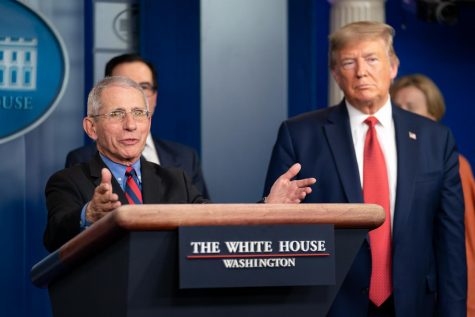Update the Conversation Surrounding Impeachment

(Courtesy of Flickr)
September 5, 2019
During the Watergate era, the clear majority of Americans were not in favor of impeaching former President Richard Nixon until August of 1974 — the very month he resigned. As of writing this article, around 52% of Americans support some form of impeachment for President Trump, and 127 House Democrats are calling for an impeachment inquiry.
One thing to note is that in both cases, citizens of the president’s opposing party were the main contributors to those petitioning for impeachment. Of 45% of Americans supporting swift impeachment of the president, only 7% identify as Republicans. Rather than associating the notion of impeachment with the committing of crimes, some people use impeachment as a way to express their disapproval of the president’s actions.
This brand of confusion is not only tolerated but exploited by the very government officials in whom we are told to put our trust. Citizens misinterpret the inner workings of our government with regards to impeachment. As of late, the topic of impeachment is the latest in a series of conversations about antiquated governmental processes — and impeachment is more antiquated than one might assume.
According to the National Constitution Center, the concept of impeachment was created not by America’s founding fathers but by the English Parliament in the early 1300s. During the Constitutional Convention, Alexander Hamilton proposed that the American government should base its impeachment process off of Parliament’s original process. This decision meant abiding by the tradition of legislature handling the trials, now known as the House of Representatives and the Senate.
However, this exact form of impeachment was deemed obsolete by Parliament not long after this decision. In 1999, the Joint Committee on Parliamentary Privilege Report affirmed that “the circumstances in which impeachment has taken place are now so remote from the present that the procedure may be considered obsolete.” So, while our political forerunners in Great Britain modernized their system, the United States government continued its death grip on not only a confusing but an outdated process.
I repeat the word “process” because that is what impeachment is: a process. Many people are not aware that if a president is impeached, it does not necessarily mean they will be removed from office. Instead, Congress can only commence the process if enough lawmakers decide that the sitting president may have committed treason, perjury or other high crimes.
The New York Times details the course implemented by our founding fathers. The president can officially be impeached only if the majority of the House of Representatives determines they are guilty on at least one charge. The proceedings are handled by the Senate, which plays the role of the jury in the president’s trial. If at least two-thirds of the Senate determine the president is guilty, he is officially removed from office.
There are no standard rules for these trials. Before the trial proceeds, the Senate (a legislative body comprised of politicians) decides on the rules for each case. Former Representative Bob Barr served as House manager during the trial of President Clinton. He states that “the rules adopted by the Senate in the Clinton trial — including limiting the number of witnesses and the length of depositions — made it harder to prove a case compared with trials in federal court.” Over three-quarters of Republican senators voted guilty, while Democratic senators unanimously declared his innocence.
This system is complex, obsolete and built to serve those working in the government rather than the people it represents.
Anyone who engages with American politics (or any fan of House of Cards) recognizes that an overwhelming number of politicians are fueled by their own ulterior motives. Unfortunately, justice does not always prevail over those with hidden agendas. Therefore, entrusting the task of terminating a president to the legislative branch is nothing short of naive. If the current president’s political party holds the majority of the Senate, there is simply no point in even holding a trial. No matter the crime, neither political party can provide a completely unbiased ruling concerning a president either denying or enforcing its legislature.
It is not difficult to understand why our impeachment process was built to mimic another country’s. Constructing a successful democracy for a young and tumultuous country would have been difficult without these guidelines. But there are several alternatives to having the Senate vote on a president’s innocence.
Personally, I agree with the system James Madison proposed, which would have tasked the Supreme Court with the authority of removing a president from office. But no matter which alternative is offered, the current system must be changed, sooner rather than later. The United States government has surpassed its label of old-fashioned, achieving the status of archaic. The American public has aged out of its developing phase and does not need to be held by the hand. That which chooses not to evolve will inevitably perish.
Briana Scalia, FCRH ’20, is a journalism and political science major from Long Island, New York.











If you want a picture to show with your comment, go get a gravatar.